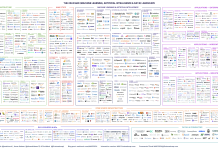Mark Hastings of Rainmaker Solutions prescribes the antidote to SI addiction: ICT disaggregation
Ever since former Cabinet Office minister Francis Maude vowed to break the centre’s addiction to the “IT oligopoly” back in 2011, the UK government has been promoting the benefits of ICT disaggregation.
Last November, the Cabinet Office reiterated its guidance to departments, pointing out that large outsourcing contracts, often single vendor arrangements lasting from five to ten years, no longer represented value for money and constrained departments from delivering ICT that met the needs of users and which enabled better ways of working.
But there are worrying signs that the guidance is still poorly understood. We read regularly, in the media, that departments are struggling to break their addiction to large suppliers, often resorting to multiple contract extensions with no real competition, or replacing one outsourcing giant with another, despite ICT provision being inadequate, programmes years behind schedule and millions of pounds over budget.
This is a dangerous game. The recent collapse of outsourcer Carillion and the well-documented problems at large Systems Integrators (SIs) are a reminder of the risks.
An unwillingness to reform, whether down to the scale and complexity of incumbent programmes, the distraction of Brexit, or a lack of in-house expertise, perpetuates the cycle of archaic infrastructure, sub-standard ICT, inflexible lock-ins and exorbitant change requests.
There is a better way. The Cabinet Office champions disaggregation because it reduces the costs of ICT provision, provides a more flexible model that is able to respond to a more volatile, uncertain, complex and ambiguous world and delivers ICT that better meets user needs.
But a successful disaggregation programme isn’t about the technology, it’s about a compelling and ambitious business vision. It’s about the users and their needs, now and in the future. Rather than focusing on insourcing versus outsourcing, it turns a spotlight on smart-sourcing; a balance between developing unique and novel components in-house and making the best use of products and commodities available in the technology marketplace.
Disaggregation requires an understanding of the integration points between technology and its users. It demands a significant change in mindset. It pushes departments to encourage personal and collective empowerment across the ICT estate and develop new skills, so staff can take control and ownership for delivery.
This is the approach we took at the Food Standards Agency, where we were able to untangle them from complex legacy technology, transforming their estate, digital services and processes to enable better ways of working. In doing so, the FSA was able to save 40% of its ICT run costs and transfer key knowledge to the in-house team, with a return on investment within 12 months. It is this approach which sees us working in partnership with MHCLG and London Borough of Croydon, to help them navigate their own disaggregation programmes.
If you want to break an addiction to large SIs and need help to kick-start your journey, speak to a partner at Rainmaker Solutions with a deep understanding of disaggregation. Resorting to the status quo is no longer acceptable. As Francis Maude said, “No one ever got fired for hiring…”. Well, perhaps they should have been.

Please note: this is a commercial profile
Rainmaker Solutions Limited
Tel: +44 (0)330 223 4407











